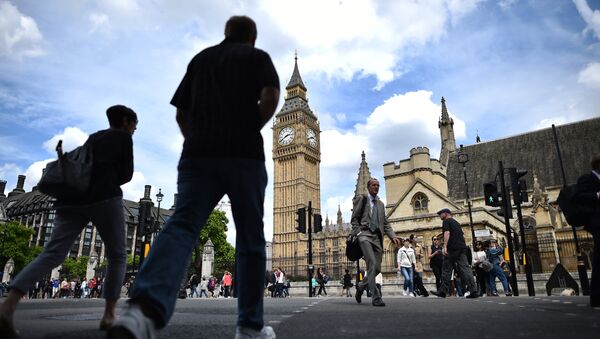"It's no coincidence that racist violence is on the rise in the UK at the same time as we see worrying examples of intolerance and hate speech in newspapers, online and even among politicians," Christian Ahlund, Chair of the European Commission against Racism and Intolerance (ECRI), said.
"Politicians have a particular responsibility for promoting tolerance and acceptance" Chair of ECRI Christian Ahlund #GPP2016 #HateCrime pic.twitter.com/jRTngDt1wf
— Good Practice Plus (@GoodPracticePls) September 21, 2016
The decision made by many people living in Britain to break away from Europe appeared to legitimize intolerance and racism in some communities towards EU migrants living in the UK.
Many people reported the onslaught of racial abuse on social media.
6 wks post #Brexit: REPORT based on your stories #PostRefRacism @WorryingSigns #istreetwatch https://t.co/jWipiZ6Hbh pic.twitter.com/bHJgkV5hm6
— Post Ref Racism (@PostRefRacism) July 29, 2016
"The Brexit referendum seems to have led to a further rise in 'anti-foreigner' sentiment, making it even more important that the British authorities take the steps outlined in our report as a matter of priority," the ECRI report states.
Many of Britain's newspapers and even politicians have been accused of purporting "anti-foreigner" sentiments in headlines and pro-Brexit campaigns.
for the people documenting #postrefracism, here's another one https://t.co/avUB76TGvJ
— Sjoerd Levelt (@SLevelt) October 4, 2016
Nigel Farage, lead Leave campaigner and former leader of UKIP, was accused of inciting xenophobia after he unveiled a giant poster featuring refugees crossing a Balkan border with the headline, "Breaking Point."
Hearing #NigelFarage declare that #BreakingPoint poster just first 1 of 6 seems like depressing advent calendar — what image tomorrow, eh?
— dlinds (@dl1nds) June 20, 2016
George Osborne, the UK's Chancellor of the Exchequer at the time and Remain campaigner compared the poster to "Nazi propaganda."
The anti-immigrant rhetoric whipped up by UKIP during the campaign to leave the EU, coupled with xenophobic headlines from some of Britain's tabloid newspapers, laid bare the "anti-foreigner" sentiments that had once again seeped onto Britain's streets, in ways which the country had not witnessed for 30 years.
Keep hearing we've put the Great back in Great Britain. Combo would be so proud of you guys.#Brexit #ThisIsEngland pic.twitter.com/9gCEQxeUJt
— Robert Summerscales (@robsummerscales) June 24, 2016
Following the Brexit referendum, the ECRI noted "considerable intolerant political discourse in the UK, particularly focusing on immigration."
The commission also added "that hate speech continues to be a serious problem in tabloid newspapers, and that online hate speech targeting Muslims in particular has soared since 2013."
New #CoE report confirms #UK racist violence on rise. #antisemitism & anti-#Muslim hate speech soaring too. https://t.co/4oVXGlPeX1 pic.twitter.com/2Zww8Sbhgs
— Council of Europe (@coe) October 4, 2016
Anti-refugee stickers and anti-Polish graffiti are just some of the examples of hate crime witnessed in areas in and around London.
In Manchester, a racist attack on a tram went viral online.
Fears surrounding immigration appear to be uniting a divided electorate in a post-Brexit era amid "worrying levels" of hate and racism.



